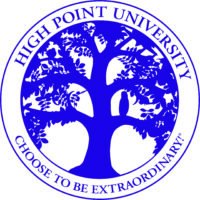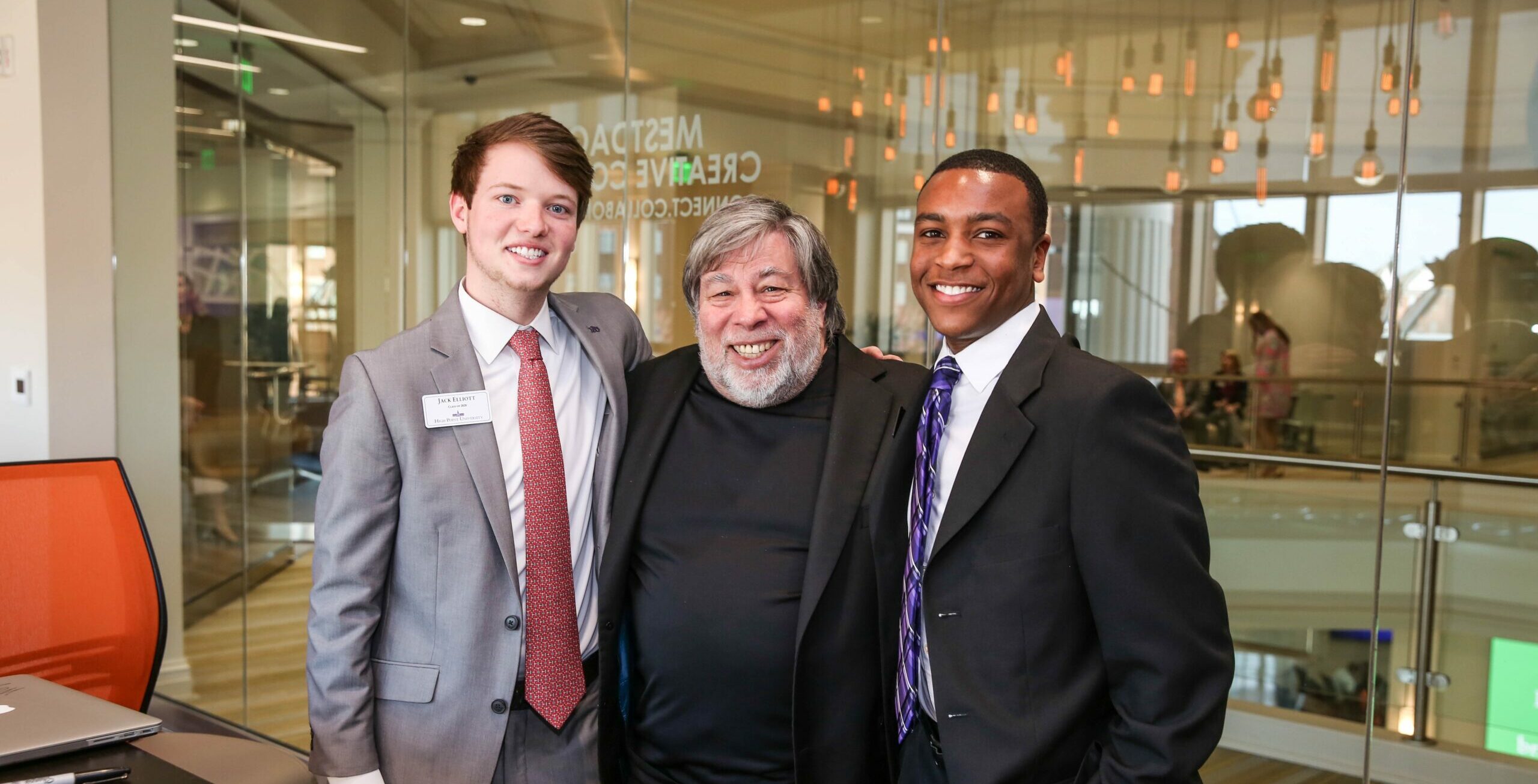The Department of Computer Science’s primary goal is to develop the aptitudes and analytical skills required for the use and understanding of computer science. The curriculum is designed to allow exceptional students to excel in their area of interest. The professors strive to guide the students in discovery and learning of new ideas, rather than just presenting carefully structured theories. Applications are used throughout to illustrate and create new material. Most topics are developed by means of interplay between applications, problem solving and theory. Early courses are designed to appeal to a broad audience of university students, while higher-level courses are more focused.
The BS in Computer Science is accredited by the CAC Accreditation Commission of ABET, under the commission’s General Criteria and Program Criteria for Computer Science.
Mission Statement
The mission of the Department of Computer Science is to provide a solid computer science foundation, delivered within a broad Liberal Arts framework, that will allow graduates to continually learn the latest technologies in order to solve relevant computational problems in an efficient, secure, and ethical manner.
- At HPU, you have the option of earning either a B.S. or a B.A. in Computer Science. The B.A. degree is ideal for double-majors, while the B.S. degree allows for in-depth research and discovery.
- B.S. students taking our optional Cybersecurity concentration can hone their skills in a state-of-the-art Cybersecurity lab.
- We are committed to incorporating the latest trends in technology into our curriculum. You will have access to a variety of hardware platforms and top software.
- Our students invent and design new approaches to computing technology and find innovative uses for existing technology.
- In the age of technology, the demand for computer programmers continues to expand. According to the U.S. Bureau of Labor Statistics, demand for students with a degree in Computer Science is growing faster than most degrees, making your education highly relevant.
- C/C++, Swift and Java
- Cloud based AWS and GitHub
- Databases: MySQL and Postgres
- Scripting Languages: Perl, PHP, Python, and JavaScript
- IDEs such as Xcode, Eclipse and CLion
- VirtualBox and VMWare
- Maple and Matlab
- Microsoft Azure Dev Tools for Teaching
- Member of Apple iOS Developer Program
- Advanced Cybersecurity and Networking Lab
- Classroom labs with iMac workstations
- Teaching Lab featuring Dell Alienware workstations with Nvidia graphic boards running Ubuntu
- HPC with 10,000+ core processors including several high-end Nvidia GPUs utilizing CUDA technology
- Several dual multi-core Intel CPU servers running Red Hat Enterprise
- 50+ node Linux cluster
- Raspberry Pi and Arduino
Faculty members received a $10,500 grant to continue an iPad app program at HPU. The applications are used in class to teach key economic principles.
Six students, mentored by Roger Shore, associate professor of computer science, designed, developed, analyzed and implemented the apps as student workers with grant funds. The grant also allowed for those students to present their work at two conferences. This will continue to be a long-term interdisciplinary collaboration with the economics and computer science faculty.
“Through this grant, our computer science majors are gaining valuable experience developing apps that eventually will be rolled out nationally,” says Shore. “The apps also make it possible for our economics students to participate in real time economic experiments. The experiments show students how their decisions and the related impacts may be affected by various economic, trading and social structures.”
The BS in Computer Science is accredited by the CAC Accreditation Commission of ABET, under the commission’s General Criteria and Program Criteria for Computer Science.
Student Outcomes of the Program
Graduates of the program will have an ability to:
- Analyze a complex computing problem and to apply principles of computing and other relevant disciplines to identify solutions.
- Design, implement, and evaluate a computing-based solution to meet a given set of computing requirements in the context of the program’s discipline.
- Communicate effectively in a variety of professional contexts.
- Recognize professional responsibilities and make informed judgments in computing practice based on legal and ethical principles.
- Function effectively as a member or leader of a team engaged in activities appropriate to the program’s discipline.
- Apply computer science theory and software development fundamentals to produce computing-based solutions.
Program Educational Objectives
Prepare graduates for a career as a computing professional. Graduates will be able to:
- Successfully practice computer science to provide solutions to challenging problems in their profession by applying computer science theory and principles.
- Communicate effectively, work collaboratively and exhibit high levels of professionalism and ethical responsibility.
- Be inquisitive and engage in professional development.
- Explore and deploy new and existing technologies and methodologies.
- Be coachable and providing coaching to junior staff.
- Achieve personal and professional success with awareness and commitment to their ethical and social responsibilities, both as individuals and in team environments.
| Degree Requirements | Credits |
|---|---|
| Major Requirements | 44 |
| University Core Requirements | 36-44 |
| Electives | 40-48 |
| Total | 128 |
| Degree Requirements | Credits |
|---|---|
| Major Requirements | 68 |
| University Core Requirements | 36-44 |
| Electives | 20-28 |
| Total | 128 |
| Course | Course Title | Credits |
|---|---|---|
| CSC 1710 | Introduction to Programming | 4 |
| CSC 1720 | Advanced Programming | 4 |
| CSC 2410 | Computer Systems | 4 |
| CSC 2710 | Advanced Data Structures with Algorithm Development | 4 |
| MTH 1410, MTH 1415 | Calculus I or Mathematics for Engineers I | 4 |
| Mathematics Requirements: Select two courses from the following list: (8 credits) *Cannot be counted towards both a MTH elective and a CSC elective for the Computer Science degree. | ||
| MTH 1420, MTH 1425 | Calculus II or Mathematics for Engineers II | 4 |
| MTH/PHY 2050 | Mathematical Methods in Engineering and Physics I | 4 |
| CSC 2342 | Discrete Structures | 4* |
| MTH 2310 | Linear Algebra | 4 |
| MTH 2410 | Calculus III | 4 |
| MTH 3150 | Probability | 4 |
| MTH 3810 | Combinatorics | 4 |
| MTH/CSC 3910 | Numerical Methods | 4* |
| STS 2910 | Introduction to Statistical Analysis | 4 |
| STS 3005 | Probability and Statistics for Engineers | 4 |
| Electives: Select any four CSC elective courses at the 1210 level or above, at least three of which are at the 2000-level or higher, including one at the 4000-level (excluding CSC4910 and CSC 4920)(16 credits) | ||
| CSC 1210 | Web Site Development | 4 |
| CSC 1610 | Introduction to Programming for Data Analytics | 4 |
| CSC 1705 | Python Programming | 4 |
| CSC 2212 | Database Systems | 4 |
| CSC 2342 | Discrete Structures | 4 |
| CSC 2881, 3881, 4881 | Special Topics | Variable credit |
| CSC/MTH 3010 | Cryptography | 4 |
| CSC 3212 | Web Technologies | 4 |
| CSC 3250 | Artificial Intelligence | 4 |
| CSC 3310 | Theory of Computation | 4 |
| CSC 3312 | Mobile App Development | 4 |
| CSC 3360 | Visual Effects, Animation and Computer Graphics | 4 |
| CSC 3460 | Networking and Network Programming | 4 |
| CSC 3810 | Introduction to Information Security | 4 |
| CSC 3820 | Penetration Testing | 4 |
| CSC/MTH 3910 | Numerical Methods | 4 |
| CSC 3940 | System Security | 4 |
| CSC 4210 | Operating Systems | 4 |
| CSC 4310 | High Performance Computing | 4 |
| CSC 4444 | Independent Study | 4 |
| CSC 4460 | Computer Vision | 4 |
| CSC 4510 | Programming Language Design and Translation | 4 |
| CSC 4810-4815 | Student Internship | 3, 4, 6, 8, 10, 12 |
| CSC 4820 | Reverse Engineering and Malware Analysis | 4 |
| Course Descriptions | ||
| Course | Course Title | Credits |
|---|---|---|
| CSC 1710 | Introduction to Programming | 4 |
| CSC 1720 | Advanced Programming | 4 |
| CSC 2212 | Database Systems | 4 |
| CSC 2342 | Discrete Structures | 4 |
| CSC 2410 | Computer Systems | 4 |
| CSC 2710 | Advanced Data Structures with Algorithm Development | 4 |
| CSC 4510 | Programming Language Design and Translation | 4 |
| CSC 4710 | Software Engineering | 4 |
| MTH 1410, MTH 1415 | Calculus I or Mathematics for Engineers I | 4 |
| Mathematics Requirements: Select two courses from the following list: (8 credits) *Cannot be counted towards both a MTH elective and a CSC elective for the Computer Science degree. | ||
| MTH 1420, MTH 1425 | Calculus II or Mathematics for Engineers II | 4 |
| MTH/PHY 2050 | Mathematical Methods in Engineering and Physics I | 4 |
| MTH 2310 | Linear Algebra | 4 |
| MTH 2410 | Calculus III | 4 |
| MTH 3150 | Probability | 4 |
| MTH 3810 | Combinatorics | 4 |
| MTH/CSC 3910 | Numerical Methods | 4* |
| STS 2910 | Introduction to Statistical Analysis | 4 |
| STS 3005 | Probability and Statistics for Engineers | 4 |
| Science Requirements: Select two courses from the following list: (8 credits) | ||
| BIO 1500/1501 | Principles of Cell Biology/Lab | 4 |
| BIO 2001/2001L | Principles of Genetics/Lab | 4 |
| CHM 1010/1011 | General Chemistry I/Lab | 4 |
| CHM 1020/1021 | General Chemistry II/Lab | 4 |
| PHY 2010/2010L | Fundamentals of Physics I/Lab | 4 |
| PHY 2020/2020L | Fundamentals of Physics II/Lab | 4 |
| PHY 2100 | Electronics | 4 |
| PHY 2200 | Computational Physics | 4 |
| Electives: Select any four CSC elective courses at the 2000 level or above, at least one of which is at the 4000-level (excluding CSC 4910 and CSC 4920) (16 credits) | ||
| CSC 2881, 3881, 4881 | Special Topics | Variable credit |
| CSC/MTH 3010 | Cryptography | 4 |
| CSC 3212 | Web Technologies | 4 |
| CSC 3250 | Artificial Intelligence | 4 |
| CSC 3310 | Theory of Computation | 4 |
| CSC 3312 | Mobile App Development | 4 |
| CSC 3360 | Visual Effects, Animation and Computer Graphics | 4 |
| CSC 3460 | Networking and Network Programming | 4 |
| CSC 3810 | Introduction to Information Security | 4 |
| CSC 3820 | Penetration Testing | 4 |
| CSC/MTH 3910 | Numerical Methods | 4 |
| CSC 3940 | System Security | 4 |
| CSC 4210 | Operating Systems | 4 |
| CSC 4310 | High Performance Computing | 4 |
| CSC 4444 | Independent Study | 4 |
| CSC 4460 | Computer Vision | 4 |
| CSC 4810-4815 | Student Internship | 3, 4, 6, 8, 10, 12 |
| CSC 4820 | Reverse Engineering and Malware Analysis | 4 |
| Course Descriptions | ||
Jue already had an impressive background. Heavily involved on campus, she was on the Dance Team, in a sorority, worked as a peer tutor and she participated in the WOZ Project. This project partnered with Apple Co-Founder Steve Wozniak, and computer science students received unparalleled mentorship directly from the man behind the technology used by millions daily. It was this experience that made her stand out to employers.
Learn more about her journey!
During fall break of his sophomore year, Sebastian joined the HPU in the City trip to New York. That’s where he met executives at Bloomberg. He was inspired by the company’s phenomenal success and decided to pursue a career there. After he graduated in 2018, he joined Bloomberg in New York as a Global Data Analyst.
Today, he’s grown into a new position as a hedge funds account manager. See more of his story!
-Alex Palmer, '13
Advanced Development Senior Engineer, Apple
Median pay for computer science majors: $102,190- 15% faster growth than the average for all occupations.
Discover more about High Point University Computer Science graduates and what they are up to after graduation.
- IT Associate at Duke Energy
- Co-Founder & CEO at Cirtual LLC, iOS Developer, UI/UX Designer
- Associate Software Analyst at The MathWorks Inc.
- Software Engineer at Gilbarco Veeder-Root
- Associate Software Engineer/Developer at Fidelity Investments
- Performance Analyst at NetApp RTP
- Lead Program Manager, Dynamics Program Office at Microsoft
- App Developer
- Application Engineer
- Business Analyst
- Computer Programmer
- Data Scientist
- Information Technology Technician
- Network Administrator
- Research Scientist
- Security Engineer
- Software Engineer
- IT Associate at Duke Energy
- Co-Founder & CEO at Cirtual LLC, iOS Developer, UI/UX Designer
- Associate Software Analyst at The MathWorks Inc.
- Software Engineer at Gilbarco Veeder-Root
- Associate Software Engineer/Developer at Fidelity Investments
- Performance Analyst at NetApp RTP
- Lead Program Manager, Dynamics Program Office at Microsoft
- App Developer
- Application Engineer
- Business Analyst
- Computer Programmer
- Data Scientist
- Information Technology Technician
- Network Administrator
- Research Scientist
- Security Engineer
- Software Engineer



















